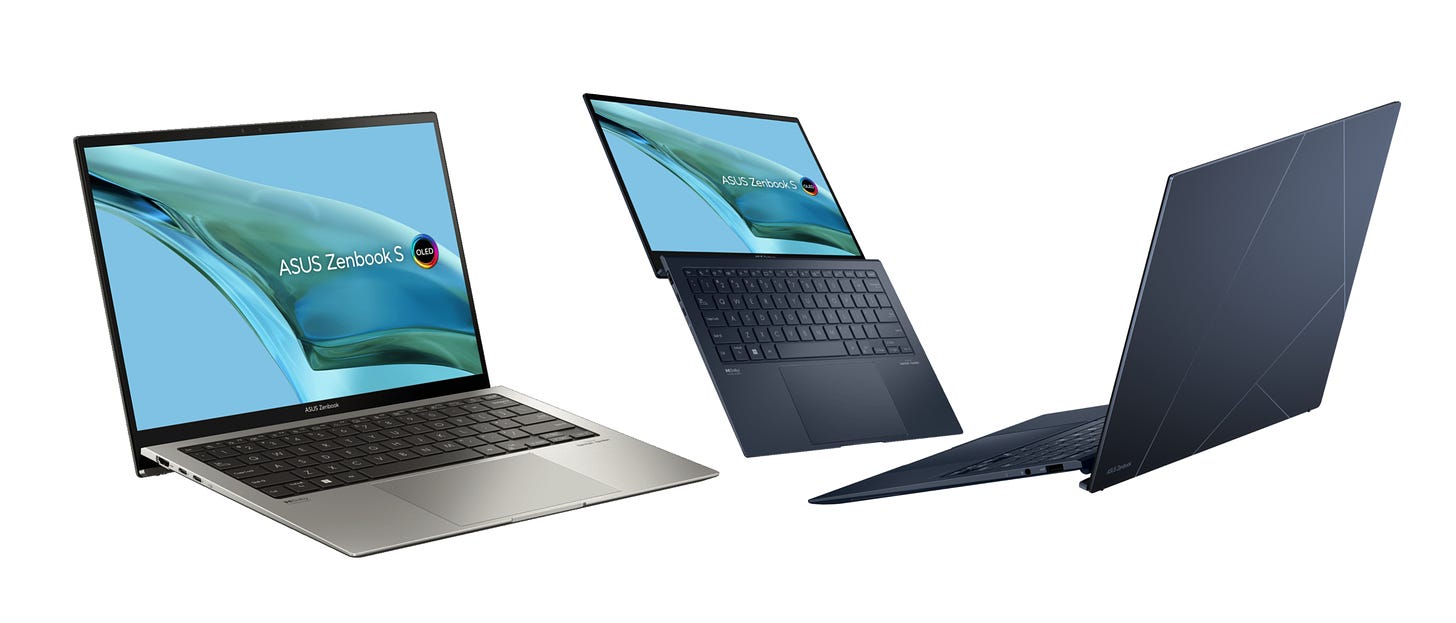The Liberal Arts Have Never Been More Important
The "human touch" is taking on a whole new meaning.
Sree’s newsletter is produced with Zach Peterson (@zachprague), with the Digimentors Tech Tip from Robert S. Anthony (@newyorkbob). The illustration was created by Sree using the Bart Simpson Worst Day of My Life meme generator. Thanks to our sponsor, Armory Square Ventures.
🗞 @Sree’s Sunday #NYTReadalong: Our guest April 23 was author, life coach, and motivational speaker Candace Sanchez. She also hosts a podcast, "Unspoken: Conversations with Candace." Digimentors is proud to be helping Candace produce Season 3 of her podcast (pro bono), and we hope you tune in. You’ll find three years’ worth of Readalong archives at this link (we’ve been reading print newspapers out loud on social for 7 years now!). The #NYTReadalong is sponsored by Muck Rack. Interested in sponsorship opportunities? Email sree@digimentors.group and neil@digimentors.group.
🎯 NEW BROCHURE! Our company, Digimentors, works to increase the digital footprint and impact of companies and nonprofits around the world. We do this via digital and social consulting, as well as virtual and hybrid events production. See our updated brochure (would love your feedback). Get in touch (no project too big or too small): sree@digimentors.group and neil@digimentors.group. If you’d rather just chat, here’s my Calendly.
***
WE HAVE HIT AN INFLECTION POINT. For thousands of years, people have debated and tried to define what it is that makes a human… human. For many of us, this was summarized in an entry-level philosophy course in undergrad that we were required to take in order to graduate.
Perhaps some others gained some perspective as to the definition of consciousness via literature or some sort of theological education. No matter how you came to these discussions and ideas, it’s likely not nearly enough time in your life has been dedicated to thinking about what the “human touch” really means.
Over the course of the last three months, however, this existential question has been thrust upon us — we are now, as a society, required to explore our very humanity. Sure, artificial intelligence has been around for some time, but most academics working in the field would debate whether true AI really existed at all beyond marketing copy for “AI-powered” software solutions. This is no longer the case.
AI is now very real, very applicable, and the next years will test our relationship with machines like never before. ChatGPT has been the headline-grabber, but there are literally thousands of AI companies working in the field right now — and they are in an arms race to deploy these remarkably complicated technologies as quickly as possible. We — all of us — are the test cases for these systems, and there is not much we can do about it.
Tristan Harris has been leading the charge for ethical technology for years. Here’s a talk he gave recently that inadvertently shows exactly what the field looks like. Less than a week after this, OpenAI released ChatGPT-4, a large language model AI system that is immensely more powerful than its previous iteration.
All of this is to say that our shared humanity — and all of the creativity, emotion, and faults that come with it — has never been so tested. With every AI-laden platform, all of the “is this thing made by AI” tools that are being built to counter them, and what I believe will be a slow-but-steady automation of large swathes of our daily lives, we are forced to truly reflect on what it means to be human.
The best way to face these most fundamental of existential questions is to lay the groundwork early — with robust investment in the liberal arts.
So-called soft skills have been in high demand in the business world for decades — and still are — but in so many cases, the “learn to code” crowd won out. Now, ChatGPT can do a good portion of the coding, and the copywriting, and the idea generating, and the… you get the idea.
But, for all the things AI can do, it isn’t capable of empathy. It isn’t capable of making the human decision over the logical one. It isn’t capable of reason. All of this matters, and most of it is taught in philosophy, theology, literature, and history courses. AI is capable of finding answers to questions, and even doing a bit of research, but it can’t learn lessons the way we can. It can’t contextualize complicated factors and come to a moral decision.
Humans can do all of these things, and it’s absolutely crucial that we prioritize the humanities across every level of education — right now. Book bannings, library closings, and the right-wing attack on universities more broadly do not bode well for this crucial moment in human existence.
It’s up to the non-zealots, the intellectually-curious, and those genuinely concerned for our collective future to drive these conversations forward. It’s up to us to understand that the things that make us human, the things that drive us to understand the difference between right and wrong, and the distinctly human ability to be… well…human… matter now more than ever. Here’s Jared Linder:
It’s also up to us to stop asking questions like, “what will you do with that philosophy degree?” and start (or continue) to ask and seek answers to the very questions those philosophers have been striving to answer for thousands of years.
— Sree / Twitter | Instagram | LinkedIn | YouTube
I’ve been writing a lot about AI recently, and plan to continue to do so. Thank you so much for your thoughtful notes and comments on this crucially-important topic. If you have any stories to share about how AI is affecting your life, send me an email sree@digimentors.group. I am also prepping my first public workshop on generative AI. If you’d like to attend, please LMK!
DIGIMENTORS TECH TIP: Asus Zenbook S 13 OLED Ultraportable Punches Well Above Its Weight
By Robert S. Anthony
Each week, veteran tech journalist Bob Anthony shares a tech tip you don’t want to miss. Follow him @newyorkbob.
If you’re a frequent traveler, you know that the best travel laptop is the one you barely notice in your briefcase. Sometimes light and thin translates into weak and slow, but a new entry from Asus proves that you can have most of the computing power you need and tote it too.
The Asus Zenbook S 13 OLED combines a brilliant 13.3-inch 2.8K screen, impressive internal hardware and clever engineering in a 10.9mm-thin (0.43-inch) package that weighs just 2.2 pounds but comes with Intel’s musclebound 13th-generation Core i7 processor.
“We’re able to get there without making compromises,” said Sascha Krohn, director of technical marketing for Asus at a recent press event in Brooklyn, New York.
The Windows 11-Pro-powered ultraportable comes with 32GB of RAM and 1TB of internal storage and supports the new Wi-Fi 6E and Bluetooth 5.2 wireless standards.
The 2,880-by-1,800-pixel Asus Lumina OLED display maxes out at 550 nits of brightness and is “Pantone verified,” an essential qualification for photographers who need to be assured that the colors they see on the screen are true and accurate. Unlike LED displays, which depend on backlighting, each OLED pixel generates its own light, thus providing for deeper blacks and richer contrast.
The display is supported by Intel Iris Xᵉ Graphics hardware, which is designed to handle multiple external displays, high-resolution video calling and sophisticated photo and video editing. The unit also offers a Harman Kardon-certified stereo speaker system which supports Dolby Atmos.
What’s interesting about the Asus Zenbook S 13 OLED is what wasn’t left out: There’s still room on the edges for two Thunderbolt 4 USB-C ports and USB-A, audio and HDMI ports. According to Asus, the unit’s 63 watt-hour battery should last up to 14 hours of video viewing or 12 hours of web surfing.
What it doesn’t have is a touch screen—which eliminates a digitizing layer which would have made the screen thicker.
A good deal of engineering went into keeping the unit thin and cool. Instead of a single internal fan there are two thin ones. The front-facing webcam and IR camera—usually the thickest components in a laptop lid—are extremely thin, here again allowing the Asus Zenbook S 13 OLED to maintain its svelte dimensions.
Even the laptop’s aluminum lid is innovative. The metal is treated in a chemical bath which transforms it into a stone-like “ASUS-exclusive plasma ceramic aluminum material” which is not only hard, durable and light, but resists scratches and fingerprints and doesn’t need to be dyed or painted.
The keyboard support is made of recycled magnesium-aluminum alloy, which also saves space and is in line with the eco-friendly design and packaging of the unit, according to Asus. The $1,400 Asus Zenbook S 13 OLED comes in Basalt Gray or Ponder Blue and is available now.
❓Did we miss anything? Make a mistake? Do you have an idea for anything we’re up to? Let’s collaborate! sree@sree.net and please connect w/ me: Twitter | Instagram | LinkedIn | YouTube / Cameo.







Thank you for writing this Sree.
I have a quotient of tech-engineer family members, and they see zero value in the liberal arts or a liberal-arts education. STEM is all that matters to them. I have been Cassandra speaking into the wind, and I've given up trying.
I've been saying for a long time that went tech/digital got to the AI point, it would be beyond me. I hope this is more of an emotional response than a reflection of my brainpower. But I dunno. I've been trying out all the toys, and it's fun, and I see all the uses. But I feel very, very sad.